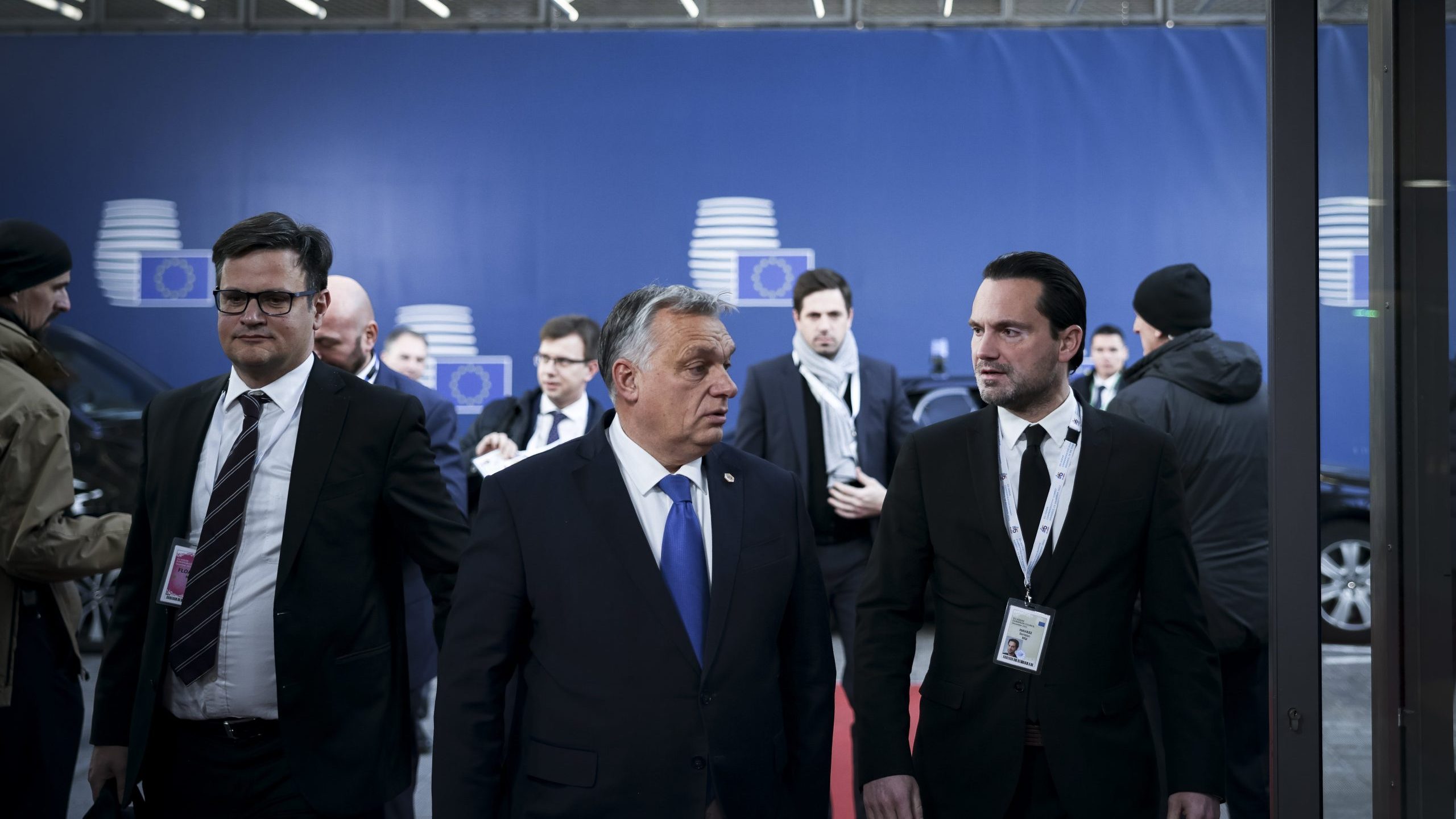
MTVA: – Prime Minister, it’s very hot! Let’s first of all ask you about the summit. Once again migration will be a priority topic, but the quotas aren’t on the agenda; the only things on the agenda are those which sound quite favourable from a Hungarian point of view. Do you agree?
– That’s the way things stand now at three o’clock in the afternoon, but Brussels is a place where you have to be constantly alert: things can happen at any time. Until the meeting is over, Central Europeans of our ilk had better be alert, and participate in the talks with sharpened senses. Indeed, as things stand at this point in time, the joint resolution which we’re planning to adopt – which we hope will not be a blank piece of paper, but will also be followed by action – will concentrate on the external dimension of the migrant issue, rather than on how to handle that which we already have inside the EU: it will concentrate on how to prevent the entry of those who we don’t want to see here. This is called the external dimension, and in that area it’s easy to come to an understanding. This is because the majority of countries – not all of them, but a great many countries – agree that we should go down to Libya, we should go to the northern or the southern border of Libya, and should set up refugee camps there. There we should separate refugees from economic migrants, and there we should conduct the relevant legal procedures and counter-terrorism screening. Following this, entry to the territory of the EU should be allowed only to those people who have undergone all these procedures and who we know don’t pose a threat to the security of the European people: those whose identities are known, and whose aims in coming to Europe are known. It’s easier to come to an understanding on this than on the issue – on which there’s no agreement – of the Western countries wanting to get rid of the migrants they let in without good reason, by distributing them among those countries – such as Hungary – which chose to defend themselves and didn’t let the migrants in. We’ll never be able to come to an agreement on that, so we should work on the issues where we can agree. These are the guidelines for today’s meeting, and I think this is a wise decision.
– Prime Minister, there will be a vote in Parliament tomorrow about an issue which is important for the Government: the legislation on political billboards. Is it a problem that you won’t be able to attend that vote? Won’t they miss your vote tomorrow?
– Well, Fidesz has a parliamentary group leader. This bill was not submitted by the Government. If the Government had presented it, I think I should be at home, but this isn’t a government motion: this is an affair concerning the political parties. It’s being submitted through the parliamentary groups. I have an opinion on this: I believe that the party financing corruption scandals which we are subjected to nowadays must be ended, and we can put an end to them if we have clear laws. So if I were at home, I would vote for this motion presented by Members of Parliament. I have a parliamentary group leader, I come under his direction, and I’m required to abide by his instructions; so if Lajos Kósa instructs me to go home, naturally I’ll go home. But when I left, he said that this is not likely to happen.
– Tomorrow morning there’ll be a very important meeting between the French president and the Visegrád countries. There are some very sharply conflicting interests, as a number of measures in the pipeline can be seen as serving market protection, and may detrimentally affect Hungary, among others. What do you expect?
– Well, the French president is indeed “the new kid on the block”: he’s coming to his first summit. We’ll check him out, we’ll get to know him, and I’m sure that he’s got ideas. There are some veterans here, however, who… There are some leaders here who have been in their jobs for more than ten years, and he’ll obviously find his way around. His entrance hasn’t been too promising, as yesterday he thought that the best way of showing friendship was by immediately taking a swing at the Central European countries. That’s not the way we do things here, but I’m sure that he, too, will learn the ropes. Thank you very much.

